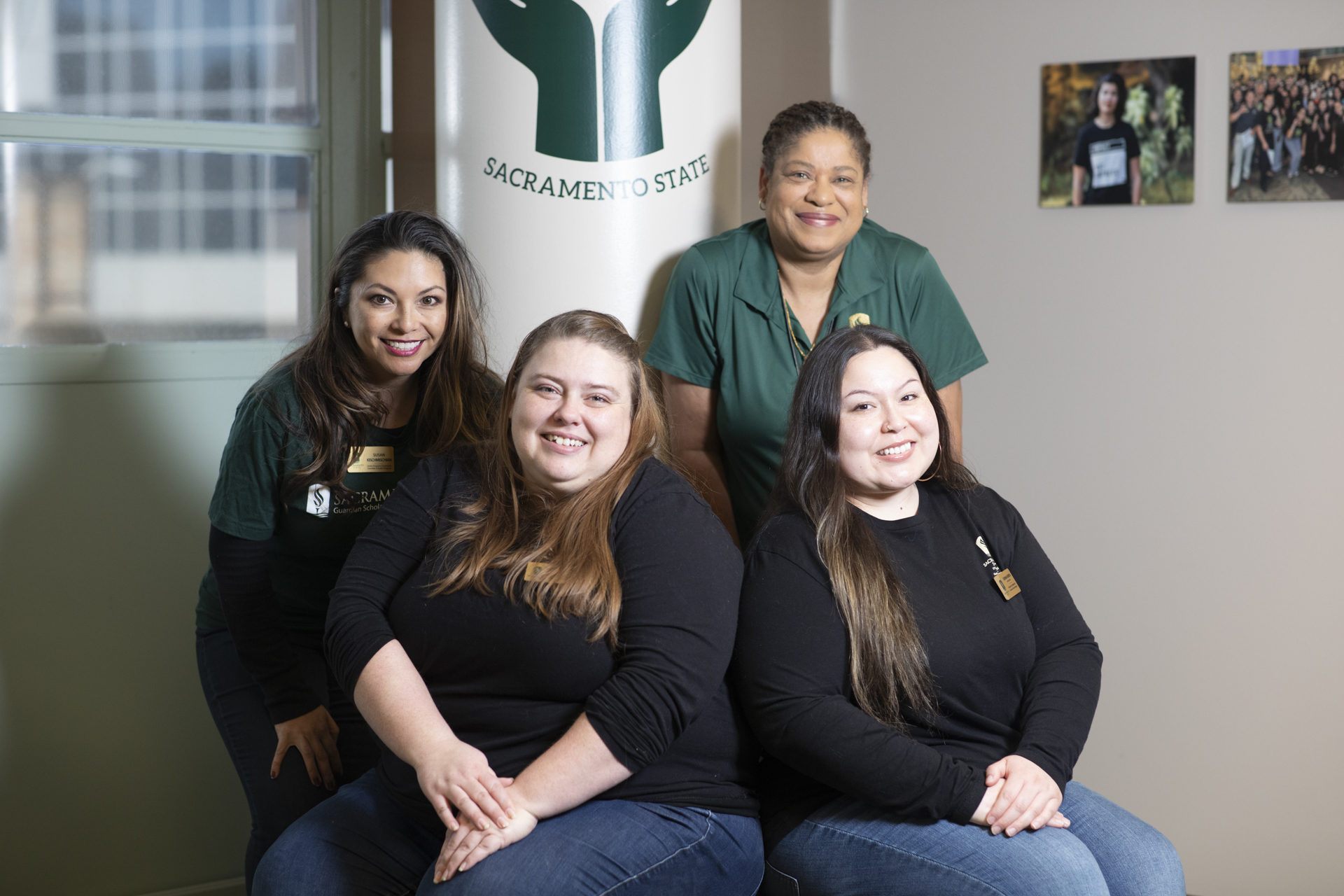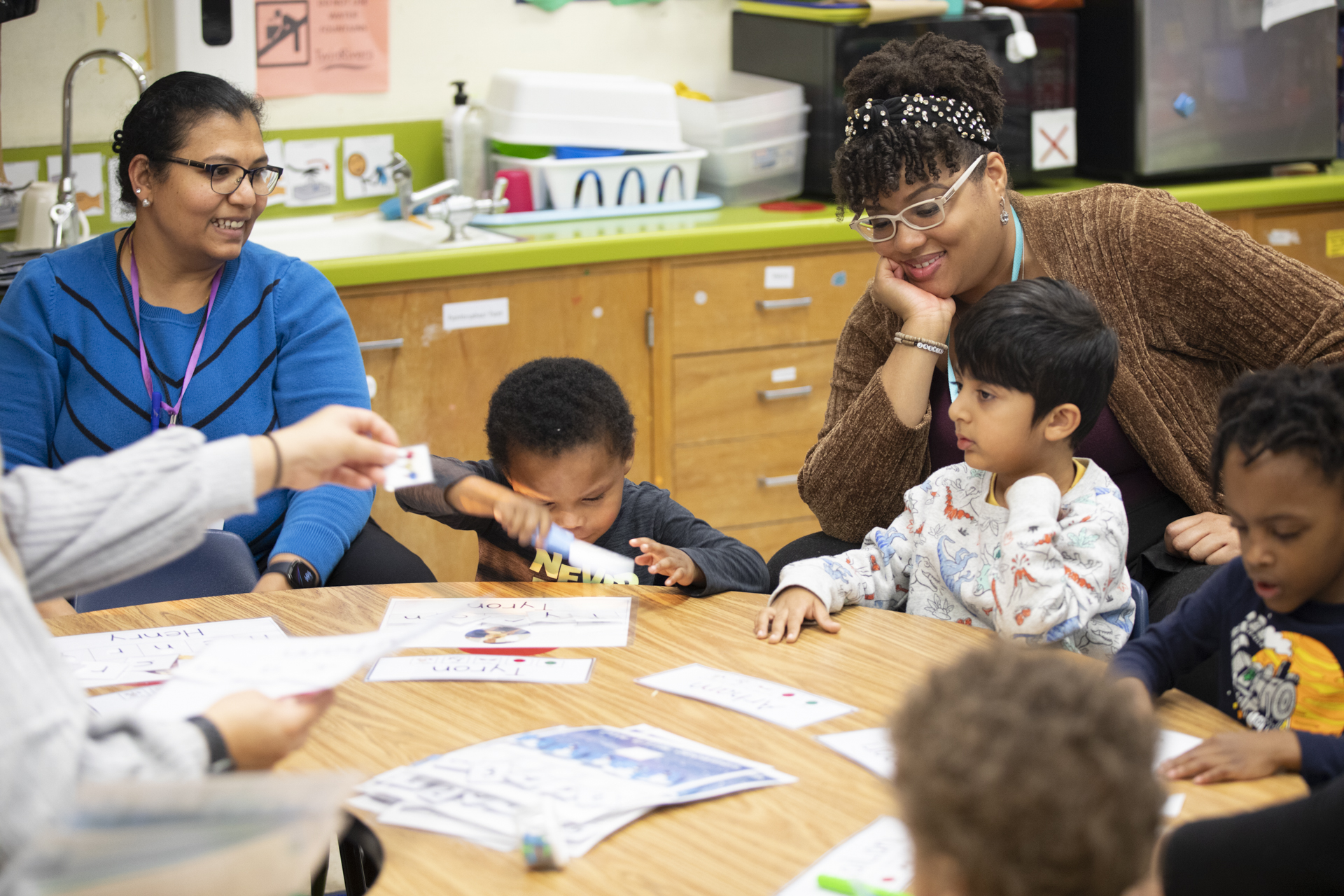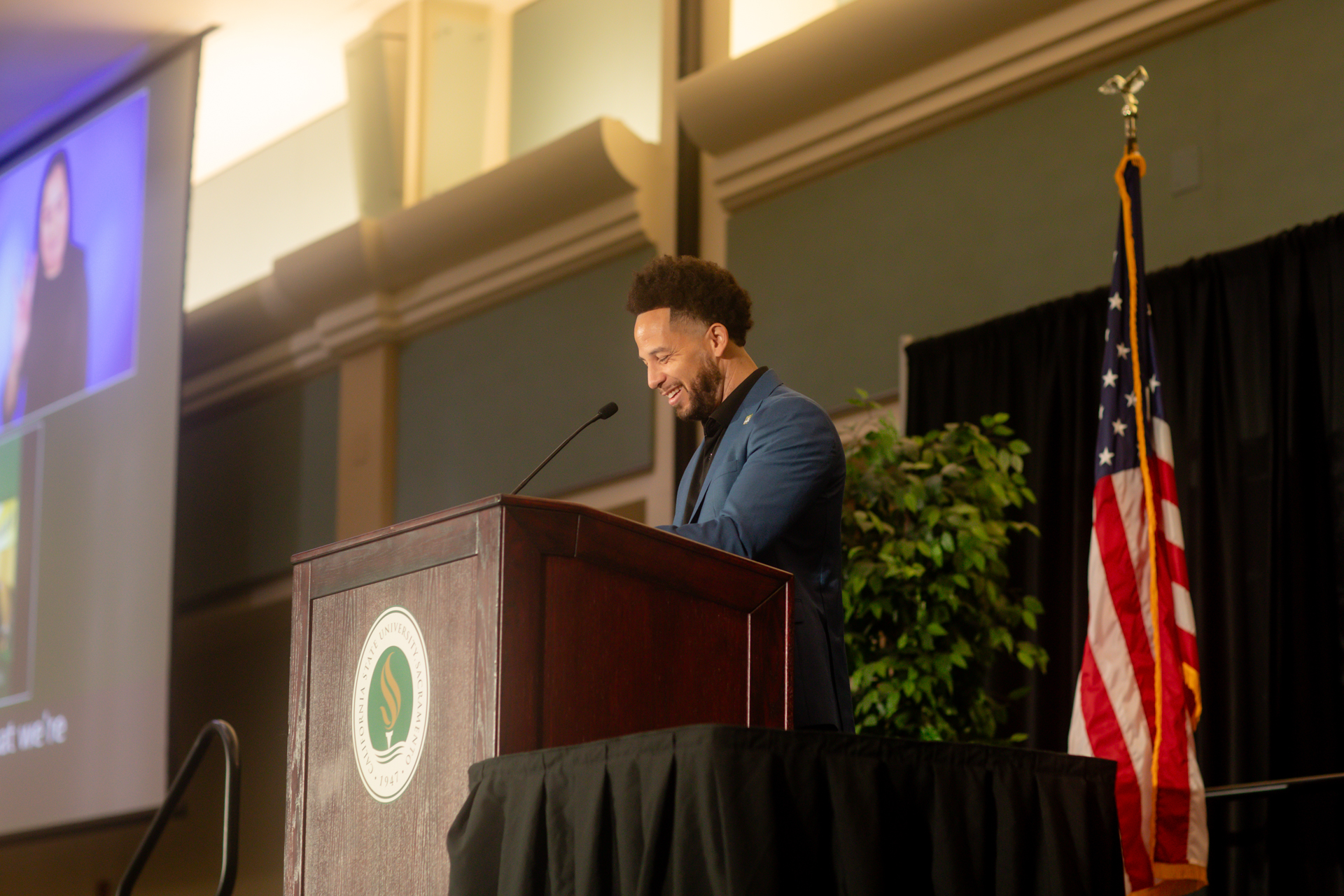Story Content
Through Guardian Scholars, Sac State pushes to make higher education more accessible to students who experienced foster care or homelessness

January 19, 2024
Sacramento State alumna Sienna Horita learned early on that family isn’t always blood.
A former foster youth, Horita had been placed in more than 25 foster homes and 16 group homes by the time she turned 18.
She found her “chosen family” with Sacramento State’s Guardian Scholars, a program designed to support students who have experienced foster care.
“Guardian Scholars helped me build that confidence to be loud and proud of being a former foster youth, for surviving that,” Horita said. “Guardian Scholars created a safe place for me and showed me my chosen family.”
• President Luke Wood shares his perspective on foster care with a national audience
Sacramento State is committed to improving the lives of students who have experienced foster care or homelessness by increasing their college graduation rates through programs such as Guardian Scholars and First Star Academy, which helps prepare high school students for college.
“Our goal is to have the largest enrollment of former foster youth in the country and to be known for serving them,” President Luke Wood said. “And by that, I mean increasing their graduation rates and labor market outcomes in terms of employment and median earnings after graduation.
“We need to provide these students with dignity as human beings and dignity as students.”
More than 23,000 teenagers age out of the U.S. foster care system each year, according to the National Foster Youth Institute. Only about 3% to 4% earn a college degree.
Of the students who enroll in college nationwide, 49% drop out during their first semester, said Linda Howe-Ram, Guardian Scholars’ director of Foster and Community Youth Initiatives at Sac State.
“The outcomes are dismal. We all know it’s hard to navigate college as it is, but if you don’t have folks you can rely on and go home to, it’s pretty difficult,” Howe-Ram said.
“It’s so important for them to have a support system, and a place where they don’t have to tell their whole story because we already get it.”
One of their biggest hurdles to getting a college degree is money.
“Our hope is through this collaboration we will recruit students who have experienced foster care or have been unhoused to attend Sac State and be a part of the Guardian Scholars Program family to support them through the journey of college completion." -- Linda Howe-Ram, Guardian Scholars’ director of Foster and Community Youth Initiatives
About 20% of foster youth instantly become homeless when they turn 18 and age out of the system, the National Foster Youth Institute reports.
Gina Bryan was one of them.
“I was homeless my senior year of high school, so my drive for college was more about survival,” said Bryan, a Sac State alumna who now works with Horita as a program coordinator for Guardian Scholars.
“I remember my first year was a really, really rough adjustment. I had no time-management skills, no family support, no one to turn to for feedback or just to say, ‘You can do it.’ ”
Even though she wanted to ask for help, as a former foster youth, Bryan said it was hard to admit she was struggling.
Bryan, who attended CSU East Bay at the time, said she dropped out of school, moved to Sacramento, and eventually enrolled at Sac State to study social work.
California legislators recently expanded the state’s Middle Class Scholarship program to make college free for foster youth enrolled at a CSU, UC or community college. Senate Bill 307 covers 100% of their unmet needs, including the cost of books, food and lodging, after other aid is applied.
Guardian Scholars has offered more than financial support since beginning in 2006.
In addition to academic counseling, emergency financial assistance, help with on-campus housing, mentoring and advocacy, Guardian Scholars has given former foster students a safe place to grab a healthy snack, hang out and meet people who know what it’s like to be in the system.
“Your typical student may be able to call home and borrow money from their parents or get the emotional support they need, but for Guardian Scholars, that’s not always the case,” Wood said.
“For many of them, their network is the campus. Their family is the Guardian Scholars community, and their home is Sacramento State.”
Wood said he sees the students in the Guardian Scholars program as family.
He and his twin brother were raised by foster parents, who eventually adopted them. He grew up acutely aware of the stigma foster children face.
Wood’s scholarly research has focused on student suspensions among foster youth, and in 2022 he worked with Assemblyman Kevin McCarty to pass state legislation better protecting foster youth from school suspensions and expulsions by giving a child’s legal counsel more opportunities to speak up.
“Even in the earliest levels of schooling, when you’re a foster youth, you’re treated differently,” Wood said. “You’re viewed through a lens of distrust, viewed as being dangerous, deviant, or up to no good, which is why foster youth have such a high exposure to suspensions.”
About 200 former foster youth are enrolled at Sac State, and Guardian Scholars serves 126, Howe-Ram said.
“Even in the earliest levels of schooling, when you’re a foster youth, you’re treated differently. You’re viewed through a lens of distrust, viewed as being dangerous, deviant, or up to no good, which is why foster youth have such a high exposure to suspensions.” -- Sacramento State President Luke Wood
She hopes to register more students during an orientation in February, and she plans to launch a new collaboration with community colleges throughout the state.
“Our hope is through this collaboration we will recruit students who have experienced foster care or have been unhoused to attend Sac State and be a part of the Guardian Scholars Program family to support them through the journey of college completion,” Howe-Ram said.
Sacramento State is also reaching out to foster youth still in high school.
First Star Sacramento State Academy is a free college readiness program for high school students that started at Sac State in 2020 as a partnership among the University, Sacramento County Child, Family, and Adult Services Department, and the nonprofit organization First Star Academy.
Through First Star, students spend one Saturday a month at Sac State participating in a variety of fun and active learning opportunities including academics, social and cultural activities, field trips, guest speakers, and recreational and service-learning activities.
They also receive individual support through mentors, homework assistance and education advocacy.
Every summer, they spend two weeks living in the residence halls, learning about college life as well as developing skills to help them succeed in high school and prepare for college.
“The whole idea is to recruit them in the ninth grade and have them stay with us for four years,” Howe-Ram said. “Then we make sure they have all their college requirements so they’re able to go to a four-year university, preferably Sac State.”
Only about a dozen First Star Academy programs exist nationwide, Howe-Ram said.
Last year, the first class graduated from high school. Of the eight students who completed the program, five are attending Sac State and three are going to community colleges, she said.
Holly and Taeya, both high school seniors (who last names are withheld because they are minors) who have been in and out of foster care, say they never would’ve met if it hadn’t been for First Star Academy.
“We’ve been in the program together the whole time, and we have such a great bond,” Holly said. “When I first got placed into foster care with my aunts, I had no idea what was happening because there was no one to talk to about the foster care system, custody battles, or the courts.
“It’s a relief to know that other people have gone through similar situations.”
Taeya has been guaranteed a spot at Sac State, where she plans to pursue a liberal studies degree.
“Being in this program has definitely made me feel like I have potential, and I can do something with my life,” Taeya said. “I have the chance to get a better education.
“It taught me that even though you come from low circumstances, you can grow into something else.”
Wood and Howe-Ram say they want to make sure students who experienced foster care know there’s a place for them at Sacramento State.
“These are students who have been impacted by systems that were never designed to properly serve them,” Wood said. “We are an education system.
“So, where others, such as social services and the criminal justice system, have failed our communities, education has to be the system that doesn’t.”
Media Resources
Faculty/Staff Resources
Looking for a Faculty Expert?
Contact University Communications
(916) 217-8366
communications@csus.edu


